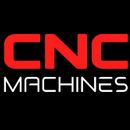The Evolution of DMG and Mori Seiki: A Journey of Innovation and Excellence

The History of DMG and Mori Seiki: A Fusion of Japanese and German Excellence in Machine Tool Manufacturing
History of DMG (Deckel Maho Gildemeister)
Deckel Maho Gildemeister, better known as DMG, stands as a testament to German engineering prowess. Emerging in the early 20th century, it carved a niche through precision and innovation in CNC machinery.
Deckel
Founded by Eduard Deckel in 1904, Munich, Deckel initially focused on high-precision milling machines, becoming a front-runner in Germany.
Maho
In 1925, Maho laid its foundations in Pfronten, known for vertical machining and precision that perfectly complemented Deckel’s offerings.
Gildemeister
Established by Adolf Gildemeister in 1870, Gildemeister excelled with turning and drilling machines, swiftly rising to industry prominence.
The Merger
The 1990s saw the unification of Deckel, Maho, and Gildemeister into DMG, culminating in a comprehensive precision machinery line, globally lauded for its quality and innovation.
History of Mori Seiki
Mori Seiki, founded in 1958 by Mr. Kintaro Mori, epitomizes Japanese engineering excellence, renowned for high-performance CNC lathes and machining centers.
The Early Years
Mori Seiki’s ascent began with high-precision lathes, pioneering through innovative engineering and superior production techniques.
Global Expansion
The 1980s and 1990s marked Mori Seiki's global footprint, establishing factories in Europe and the U.S., solidifying its global market stance.
Technological Innovations
Renowned for advanced CNC technologies, Mori Seiki introduced vertical machining and multi-axis turning centers, setting new industry benchmarks.
The Merger: DMG and Mori Seiki
In 2009, a strategic merger birthed DMG Mori, a behemoth in machine tool manufacturing, combining DMG's CNC prowess with Mori Seiki’s lathes expertise.
Key Details of the Merger
The merger heralded a unified DMG Mori brand, a 50/50 joint venture enhancing both companies’ brand recognition worldwide.
Integration of Japanese and German Cultures
The merger transcended technological synthesis, integrating distinct German and Japanese corporate cultures, yielding unique challenges and advantages.
Challenges of Integrating Cultures
- Business Practices: Bridging direct German business practices with the collaborative, consensus-driven Japanese approaches posed adaptation challenges.
- Management Styles: Merging hierarchical Japanese management with decentralized German structures required strategic alignment.
- Operational Integration: Harmonizing established production processes and quality standards across borders was an intricate task.
Advantages of Cultural Integration
- Innovation and Precision: German precision synergy with Japanese innovation led to pioneering, reliable machine tools.
- Global Expansion: Leveraging both companies’ robust networks enabled DMG Mori’s strengthened global presence.
- Efficiency and Productivity: Marrying Japanese lean manufacturing with German craftsmanship optimized production efficiency.
Advantages of the DMG Mori Merger
- Market Expansion: The merger facilitated broader market access, bolstering DMG’s Asian market presence and Mori Seiki’s reach in Europe and the U.S.
- Diversified Product Line: Expanding their product portfolio with complementary technologies presented holistic solutions.
- Technology and R&D Synergy: Collaborative innovation led to groundbreaking technologies, including multi-axis CNC and hybrid additive/subtractive machines.
Disadvantages of the DMG Mori Merger
- Cultural Differences: Integration faced hurdles from differing business practices and management philosophies, affecting communication and integration pace.
- Branding Confusion: Merging established brands necessitated strategic branding to solidify the new identity.
- Operational Challenges: Initial supply chain and process alignment challenges demanded strategic adjustment.
Conclusion
The DMG Mori merger marks a paradigm shift in machine tool manufacturing, blending German and Japanese engineering legacies. Despite integration challenges, the merger’s strategic benefits have fortified DMG Mori’s leadership, offering unparalleled precision machining solutions globally.


